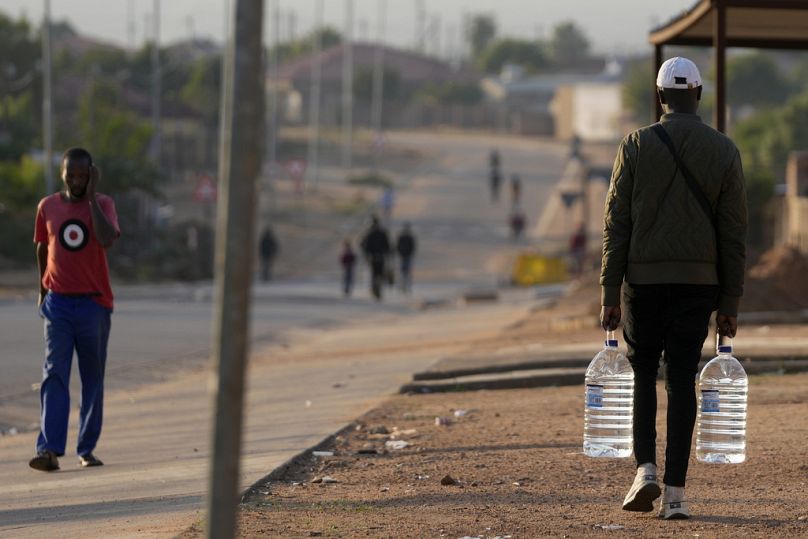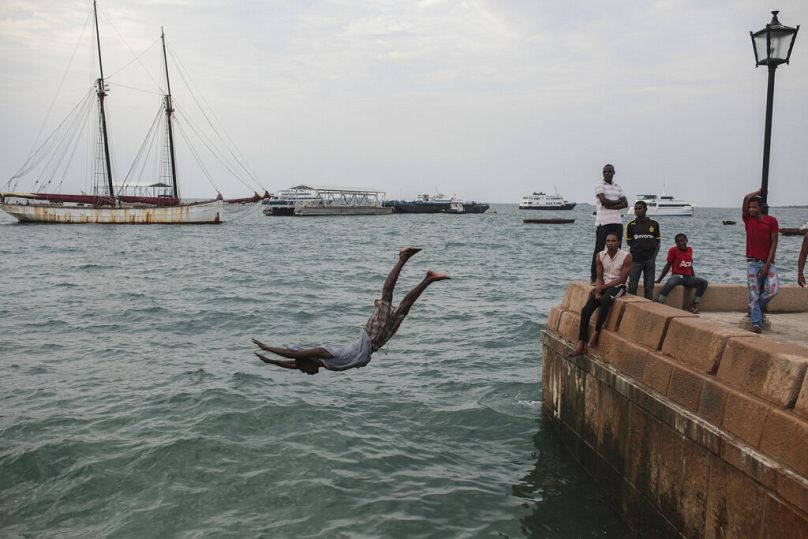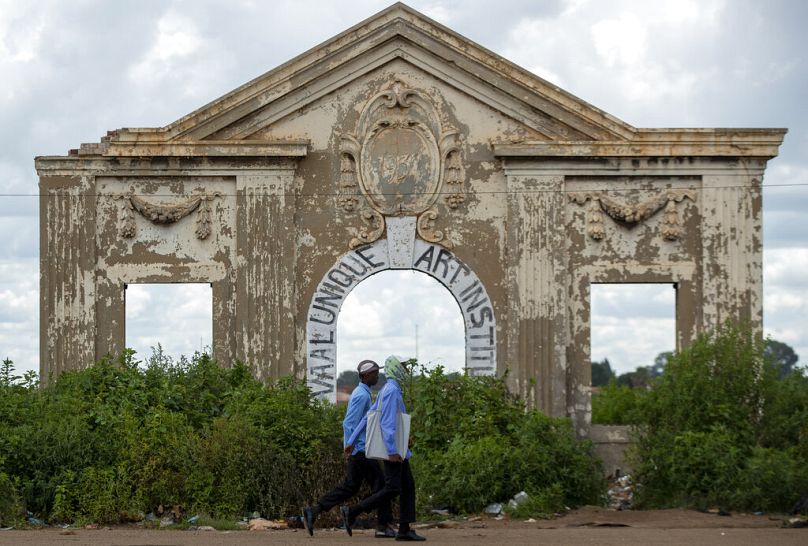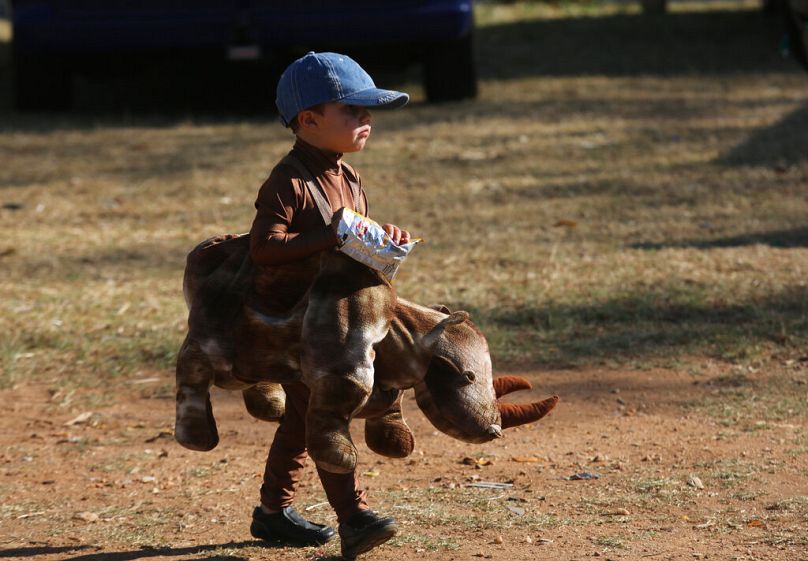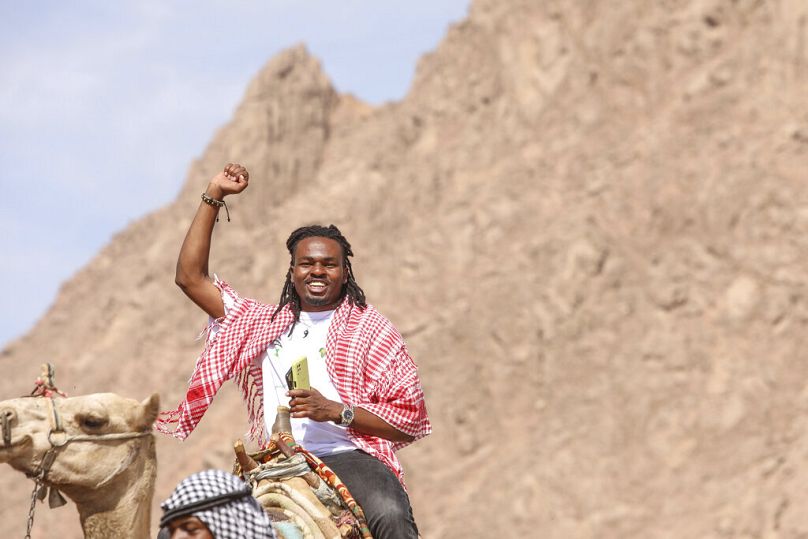The people of Africa have been on the receiving end of centuries of exploitation by people from the rest of the world, but perhaps the greatest and most lasting impact will be indirect: climate change, Ivor Ichikowitz writes.
For most people, it doesn’t take the recently-celebrated World Environment Day to presume that climate change-induced living conditions of many people in Africa from all walks of life are unjustly tough.
However, very few of us realise that conditions are so severe that roughly one-third of African youth struggle to access clean water every day.
In Congo Brazzaville, 70% of the youth battle to get clean water, as opposed to 50% of the youth in the neighbouring Democratic Republic of the Congo. The figures in Sudan are similar.
The United Nations Children Fund (UNICEF) and the World Health Organisation (WHO) estimate that more than 398 million people in Africa do not have reliable access to drinking water.
900 million youth further lack access to adequate hygiene and a third of young people in Africa rely on bottled water. In Nigeria, this particular number almost doubles to six in ten.
Africa already suffers from climate change effects
Half the continent’s population between the ages of 18 and 24 — a key component of the world’s collective marketplace and its largest youth demographic by far — spend up to a quarter of their income every month buying fresh water.
One in six spend more than half their income.
All of this stands in sharp contrast to European countries like the UK, where the cost of recommended 50 litres of water per day is only 0.1% of the average basic salary.
There are many reasons for this predicament; after all, the people of Africa have been on the receiving end of centuries of exploitation by people from the rest of the world.
But perhaps the greatest and most lasting impact will be indirect: climate change.
The most vulnerable continent in the world
It is one of the most profound ironies that raw materials extracted from Africa and then beneficiated in the northern hemisphere, which rapidly industrialised as a result, will have a disproportionate effect on the continent from which they were taken.
The continent’s emissions account for less than 3% of the world's total, but Africa is the most vulnerable region in the world.
Flash flooding, droughts, and other dramatic weather patterns are increasingly wreaking havoc on the African way of life, from the coastlines to the hinterland, disrupting food and water insecurity in a continent that is already poverty-stricken in many places.
All of this is exacting a terrible cost every year: US medical journal The Lancet reported that pollution claimed 1.1 million deaths in Africa.
The World Health Organisation recorded that 1.2 million African people had to flee their homes because of extreme weather.
African youth understand the consequences of climate change
Sometimes, if you travel across Africa, you might be forgiven for thinking that the ordinary person on the dusty street thinks little about the impact of climate change or the deeper consequences of foreign influence on their homeland.
You would be grievously mistaken if you did.
African youth especially are extremely vexed by the increase — 80%, in fact, want their government to do more about climate change and want them to pursue policies that will lead to their countries going carbon neutral.
Four in ten African youth believe climate change will harm them personally. Half sincerely believe that climate change will affect future generations negatively.
Three-quarters of the respondents are deeply concerned about the effect of pollution in the air, water and land and the increasing frequency and severity of extreme weather events.
The same number is very worried about the destruction that is being wreaked upon natural habitats and farmlands, with the associated increase of crop infestation and insect plagues.
Ambitions, hopes, and fears of the next generation
Poaching is another problem bedevilling Africa. In a sea of poverty, the illegal killing of wild animals is both a source of income — and food.
In this regard, our youth are concerned about the impact of poaching on their natural heritage, with 69% believing that the practice could lead to the extinction of certain species. At least half further believe poaching has increased.
In countries like Gabon and Ghana, however, there is a very real awareness of the short-term benefits of poaching, which leads to dissonance about how to deal with it.
Generally, 66% of youth in Africa believe products from poaching should be banned, which rises to 80% in countries like Kenya and Ethiopia, but in Nigeria and Sudan, this drops to 33%.
All of these findings are contained in the second edition of the African Youth Survey (AYS), a unique deep-dive into the ambitions, hopes and fears of African youth that has been specifically set up because the study’s respondents, aged 18 to 24, are the next generation of African leaders and yet there has never been a survey conducted to test what they think.
True commitment is clearly there
What we see when we study the survey is that this next generation is neither disempowered nor ignorant of the hazards their countries and their continent face.
On the contrary, these are a highly motivated, highly informed, and deeply committed cohort of citizens determined to ensure they have a chance at a life that was perhaps denied to their parents.
We see how they will not accept fake news or empty platitudes but will hold their leaders to account — across a wide range of different issues, with the environment being one of the key ones — for the simple reason that they are living with the consequences of decisions and acts made by others well before they were even born.
What is vital to understand, too, is that their commitment is far more than just lip service but rather rooted in personal commitment and activism.
Two-thirds of them are actively supporting, participating in or donating to environmental causes — led by youth in Kenya, Ghana and Rwanda. The same proportion are actively working to reduce their own carbon footprint.
There's no time to waste
But it isn’t enough — Africa doesn’t have the time to wait before the youth become leaders in their own right.
Following World Environment Day, this should be instead a clarion call to progressive companies wanting to invest in Africa and institutions with a commitment to the continent. There is a groundswell of support waiting in the wings, ready to be harnessed for the good of all.
As they say in Africa: if you want to go fast, go it alone; if you want to go far, go together.
If Europe and the world are serious about helping Africa, they have to work with the youth — where it will find fertile ground to plant the seeds for change.
Ivor Ichikowitz is an African industrialist and philanthropist. He chairs the Ichikowitz Family Foundation, which conceptualised and funds the African Youth Survey.
At Euronews, we believe all views matter. Contact us at view@euronews.com to send pitches or submissions and be part of the conversation.












